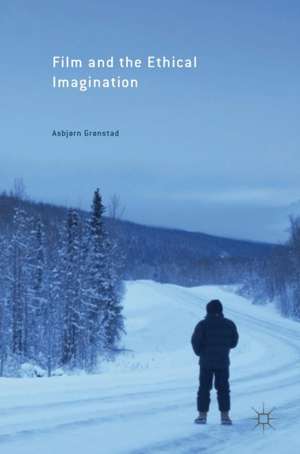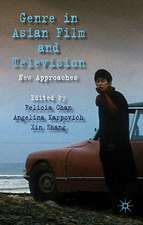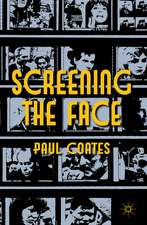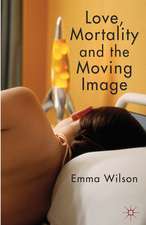Film and the Ethical Imagination
Autor Asbjorn Gronstaden Limba Engleză Hardback – 19 dec 2016
Preț: 646.62 lei
Preț vechi: 760.73 lei
-15% Nou
Puncte Express: 970
Preț estimativ în valută:
123.75€ • 128.72$ • 102.16£
123.75€ • 128.72$ • 102.16£
Carte tipărită la comandă
Livrare economică 15-29 aprilie
Preluare comenzi: 021 569.72.76
Specificații
ISBN-13: 9781137583734
ISBN-10: 1137583738
Pagini: 247
Ilustrații: XIII, 260 p. 12 illus., 11 illus. in color.
Dimensiuni: 148 x 210 x 22 mm
Greutate: 0.59 kg
Ediția:1st ed. 2016
Editura: Palgrave Macmillan UK
Colecția Palgrave Macmillan
Locul publicării:London, United Kingdom
ISBN-10: 1137583738
Pagini: 247
Ilustrații: XIII, 260 p. 12 illus., 11 illus. in color.
Dimensiuni: 148 x 210 x 22 mm
Greutate: 0.59 kg
Ediția:1st ed. 2016
Editura: Palgrave Macmillan UK
Colecția Palgrave Macmillan
Locul publicării:London, United Kingdom
Cuprins
Introduction.- Part I: Ethics.- From an ethics of transgression to a general ethics of form.- Optics as an Ethics.- The Return of Ethics in Literary Studies.- Screen Ethics before the Ethical Turn.- The Ethical Turn in Film and Visual Culture: From Content to Form.- The Responsibility of Forms.- Six Theses on the Ethical Imagination.- Part II: Imagination.- Ethical Intimacy and the Cinematic Face.- Slow Cinema and the Ethics of Duration.- The Ethics of Dying.- A Cinema of Gestures.- Ethics, Politics and the Question of Form.- The Ethical Image Between Fiction and Politics.- The Ethics of Matter and Memory.- Bioscreens.- Film Visions, Planetary Ethics.-
Recenzii
“Grønstad’s thought-provoking work provides a significant and novel contribution to the investigation of the relationship between ethics and film form.” (Andrew Jones, Film-Philosophy, Vol. 23, 2019)
“Film and the Ethical Imagination is a significant contribution to the field of film ethics; it does not set itself up as a survey of the field, but offers efficient overviews of developments in the past twenty years, as well as makes certain original contributions … .” (Jonathan Wright, Film Matters, Vol. 09 (2), 2019)
“Film and the Ethical Imagination is a significant contribution to the field of film ethics; it does not set itself up as a survey of the field, but offers efficient overviews of developments in the past twenty years, as well as makes certain original contributions … .” (Jonathan Wright, Film Matters, Vol. 09 (2), 2019)
Notă biografică
Asbjørn Grønstad is professor of visual culture in the Department of Information Science and Media Studies, University of Bergen, where he is also founding director of the Nomadikon Center for Visual Culture Studies. The author or editor of nine books and numerous articles, his latest publication is Seeing Whole: Toward an Ethics and Ecology of Sight (co-edited with Mark Ledbetter, 2016).
Textul de pe ultima copertă
This book provides a comprehensive, critical overview of the turn to ethics in literature, film, and visual culture. It discusses the concept of a biovisual ethics, offering a new theory of the relation between film and ethics based on the premise that images are capable of generating their own ethical content. This ethics operates hermeneutically and materializes in cinema’s unique power to show us other modes of being. The author considers a wealth of contemporary art films and documentaries that embody ethical issues through the very form of the text. The ethical imagination generated by films such as The Nine Muses, Post Tenebras Lux, Amour, and Nostalgia For the Light is crucially defined by openness, uncertainty, opacity, and the refusal of hegemonic practices of visual representation.
Caracteristici
First book to present a unified theory of what a visual ethics might involve Presents the new concept of a biovisual ethics Offers a systematic account of the history of the ethical turn both in literature, film and visual culture Advances a new conceptualization of ethics in the cinema that is grounded in the imaginative worlds of the films themselves
















